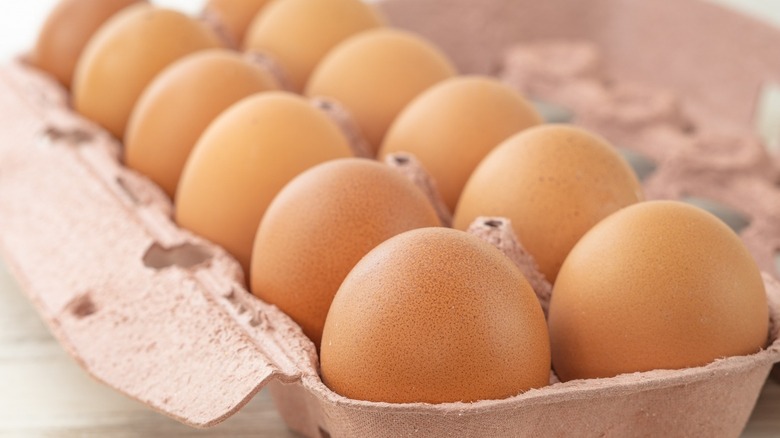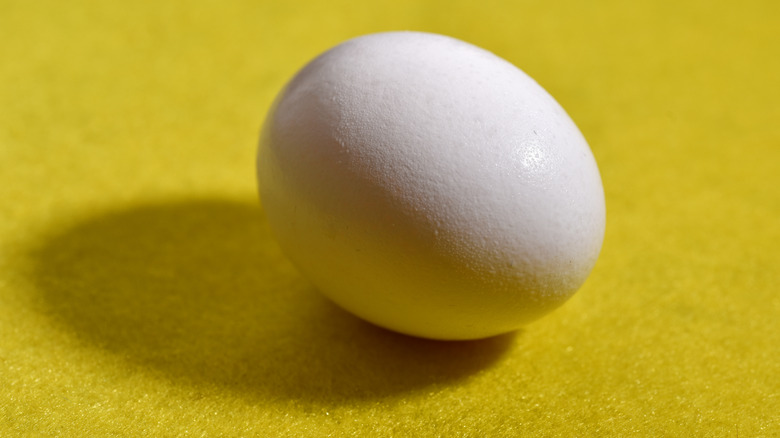Egg Prices Are Finally Going In The Right Direction
While Easter may have come and gone, it looks like we finally have good news on the egg front. Prices were so high earlier this year that the potato industry was beginning to capitalize on internet memes, marketing colorful spuds as a substitute for Easter eggs. Even Farmers Only was getting in on the action, offering a promotion with egg-related perks.
Wednesday, the U.S. Bureau of Labor Statistics reported an 11% fall in egg prices in March, after an already substantial drop in February (via CNBC). While this is especially good news for the egg market, it's also pretty promising regarding overall inflation trends. The increase in the Consumer Price Index (CPI), the widely-accepted measure of inflation, was 0.1% last month, tying March 2023 with December 2022 for the lowest rate of inflation in the past 8 months (per BLS). This decrease was even larger when accounting only for grocery prices.
The price of eggs was one of the most shocking inflationary trends of the past year. The price peaked in January 2023, with a dozen going for $4.82 on average and over $7 dollars in some states. This was double what prices were the year before, and it seemed like there was no end in sight. Luckily, prices are back down in the $3 range, with wholesale (bulk egg prices purchased by retail sellers) also down by as much as $0.95 for Grade B eggs, forecasting further decreases in pricing (via USDA).
What caused the shift?
Which came first, the chicken or the egg? In the case of this past year's egg-flation, it was the chicken, as bird problems jacked up production costs. Egg prices were high in the middle of 2022, causing consumers to rethink their breakfasts. They only went higher as the year wore on and multiple pressures on the supply chain converged, such as the war in Ukraine, which limited Russian-imported fertilizer and grain-based chicken feed. However, the largest factor was the deadliest U.S. bird flu outbreak in history, which began in 2021 and has since killed over 57 million animals (per NPR). Many farmers were left with no choice but to kill their own poultry to limit the spread, which has decreased poultry-related supply globally and led to a markup on just about anything containing eggs, be it a carton or a jar of mayonnaise.
Now, a mixture of factors is pushing egg prices back down. While the USDA Egg Markets Report showed a decrease in egg inventory post-Easter, lower demand from consumers supports an overall pricing decline. Furthermore, lower diesel prices have led to shipping costs shrinking, taking some pressure off of consumers. Beyond this, egg production may have finally made gains as the management of the bird flu improves and flocks grow, and the White House considers a vaccine for the virus (via The New York Times). For now, maybe it's time to enjoy those scrambled eggs you've been holding off on.

